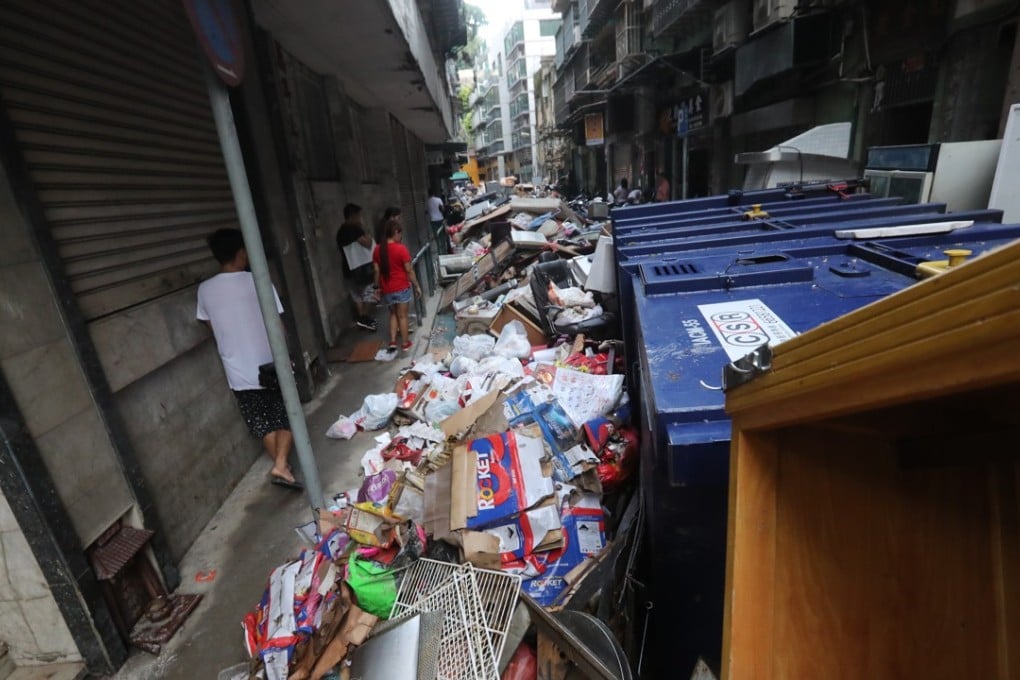Macau observatory chief resigns as government slammed for response to deadly typhoon
City’s chief executive, Fernando Chui Sai-on, apologises to residents and offers condolences to victims’ families

Macau residents have slammed the government for its poor response to deadly Typhoon Hato, the strongest recorded in the city in 53 years, while they struggle to cope with the damage the storm has inflicted.
Eight people died and more than 200 were injured when the typhoon struck the former Portuguese enclave, which saw its electricity supply cut, drinking water facilities damaged, windows of residential buildings shattered and other public infrastructure wrecked.
Hato left a trail of destruction on the streets, filled with massive piles of rubbish, dead fish, furniture, torn down billboards and scaffolding, alongside several uprooted trees and windows.
Luxurious seaside residential tower La Cite in Areia Preta also resembled a war-torn building, after its windows were broken during the storm.
“The residents of Macau are frustrated and powerless in the face of such a tragedy,” IT engineer Gilberto Camacho, 39, said.
In Hato’s aftermath, Hongkongers pick up the pieces, one rubbish bag at a time
“Now the main problem we are facing is a lack of both running water and drinking water. I don’t have water at home and there is no bottled water in the supermarket,” he said.
The Post saw several dozens of people queuing up to get access to firefighters’ water hydrants in different parts of the city.